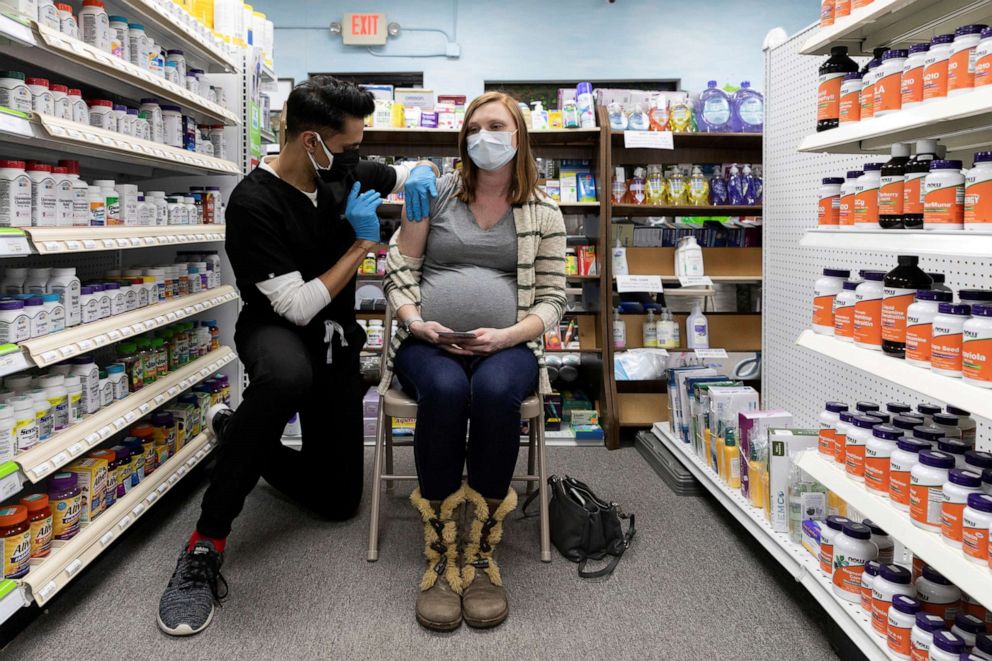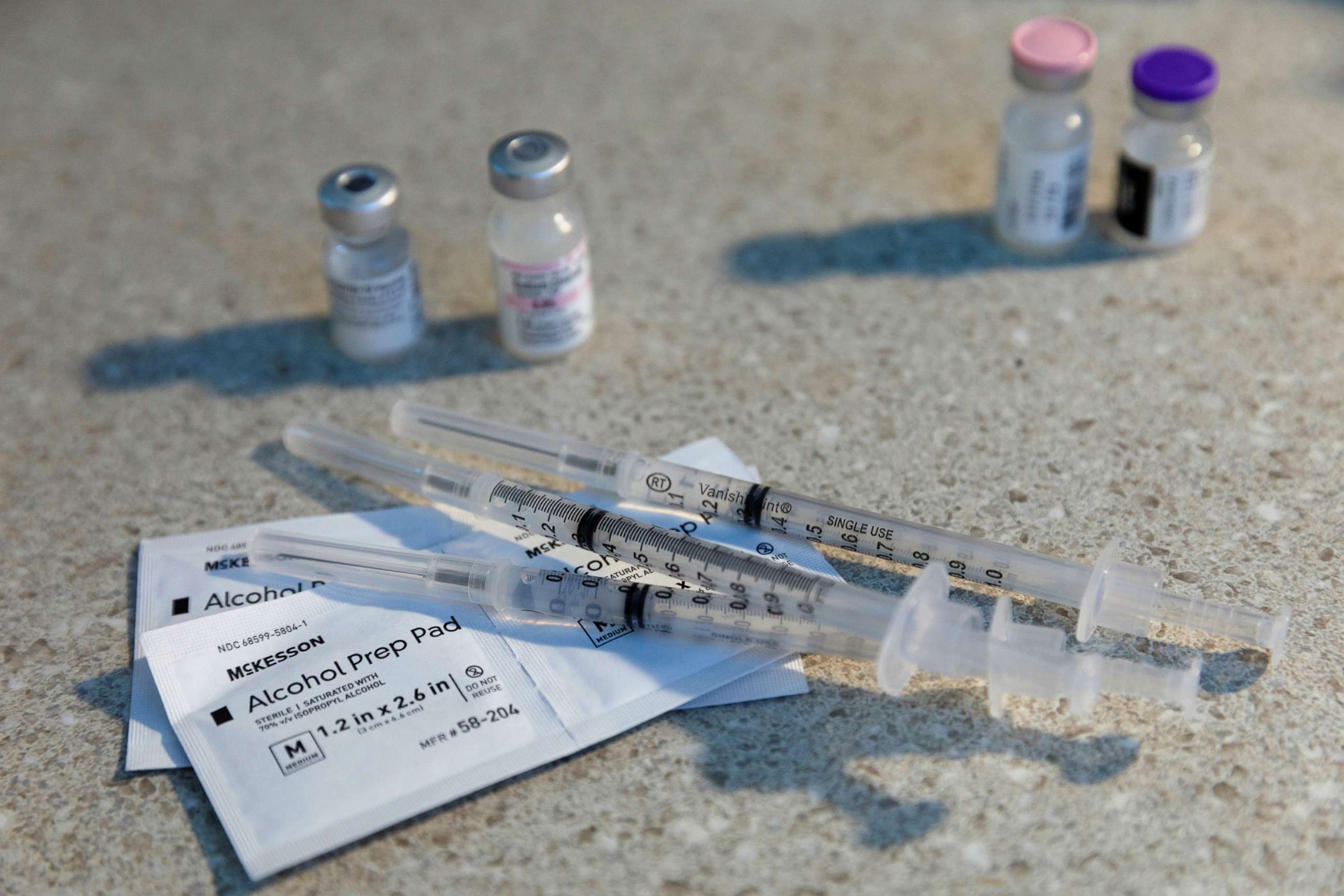Pfizer launches COVID-19 vaccine trial in pregnant women
Pfizer's trial will include 4,000 pregnant women.
Pfizer and BioNTech have announced a new trial to evaluate their COVID-19 vaccine in pregnant women.
Their vaccine, along with Moderna's, are the two mRNA vaccines currently available in the United States after being granted Emergency Use Authorization by the Food and Drug Administration.
Pregnant women were excluded from the first clinical trials, meaning there's limited data in this group. The Centers for Disease Control and Prevention says getting vaccinated is a personal choice for anyone who is pregnant, and recommends people speak to their health care providers if they have questions about relative risks.
Dr. Anna Durbin, professor of international health at Johns Hopkins Bloomberg School of Public Health, told ABC News, "These trials will provide important data on the safety and immunogenicity of the vaccines in pregnant women. These data weren't collected during the Phase 3 trial and will build confidence for the use of these vaccines in women who are pregnant."
Moreover, while data is preliminary, studies show "the risks of COVID during pregnancy are of increased premature labor, increased intubation, and increased deaths compared to those women that don’t have COVID in pregnancy," Dr. Jacques Moritz, medical director of TIA Women Health, told ABC News.
Pfizer's trial will help offer more conclusive data about the vaccine's safety and effectiveness in pregnant women.
"It is awesome that they are doing a clinical trial in pregnant women because the physiology is so different in pregnant women," said Dr. Laura Riley, OB/GYN-in-Chief at NewYork-Presbyterian and Weill Cornell Medicine.
“These data will reveal information about safety, help us to understand the side effect profile of these vaccines in this population, and the immune responses of both mother and baby," Riley said.
The phase 2/3 trial will enroll approximately 4,000 women within weeks 24-34 of their pregnancy, Pfizer announced in a press release.
Half will get the vaccine, and half will get a placebo

The study will include healthy, pregnant woman age 18 and older in the U.S., Canada, Argentina, Brazil, Chile, Mozambique, South Africa, the United Kingdom and Spain.
Participants in the vaccine group will receive two doses at 21 days apart -- and each woman will be followed for at least 7-10 months in order to continuously assess for safety in both participants and their infants.
Infants will also be assessed, up until 6 months of age, for transfer of protective antibodies from their vaccinated mother.

Women enrolled in the trial will be made aware of their vaccine status shortly after giving birth to allow those women who originally received placebo to be vaccinated while staying in the study.
"Pregnant women have an increased risk of complications and developing severe COVID-19, which is why it is critical that we develop a vaccine that is safe and effective for this population," Dr. William Gruber, senior vice president of Vaccine Clinical Research and Development for Pfizer, stated in the release.
Dr. Stephanie Widmer is an emergency medicine physician and medical toxicology fellow in New York and a contributor to the ABC News Medical Unit.
Raehannah Jamshidi, M.D., Ph.D., a pediatric resident with McGovern Medical School at UTHealth in Houston, is a contributor to the ABC News Medical Unit.




